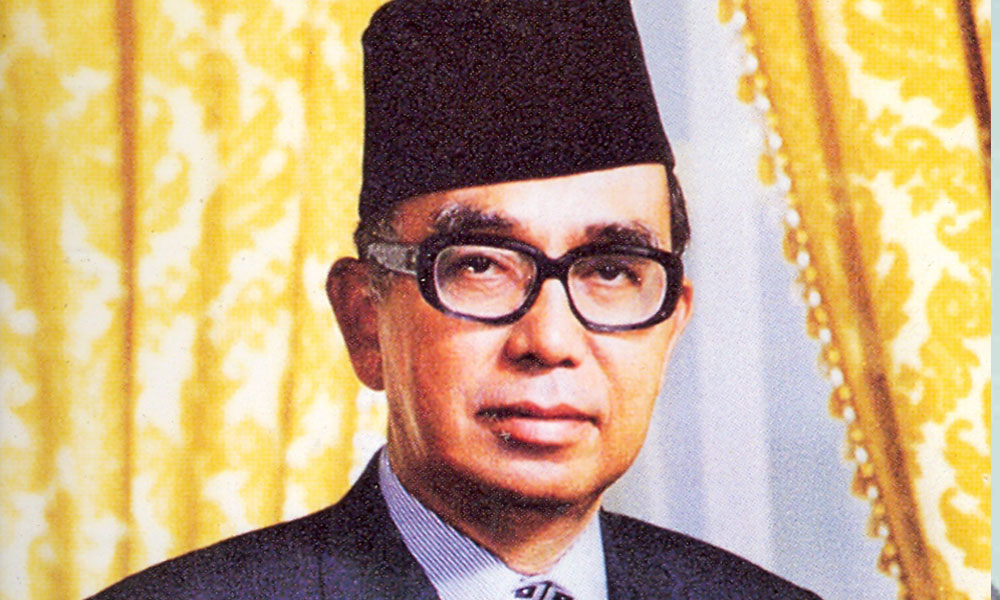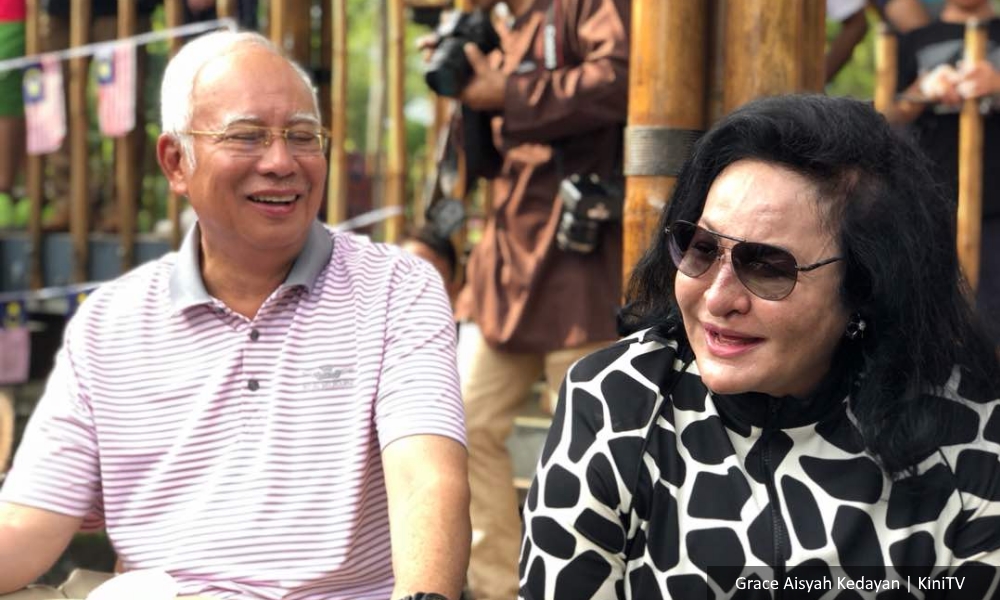The privilege and burden of family
MP SPEAKS | Family can be both a privilege and a burden. Nazir Abdul Razak makes this abundantly clear in his memoir, ‘What’s in a name’.
As the son of a transformational prime minister (Abdul Razak Hussein) and the brother of a controversial one (Najib Abdul Razak), Nazir, as everyone knows, carved a path for himself: CIMB, under his watch, became one of Southeast Asia’s biggest banks.
Nevertheless, his father towers over the narrative. Domestically, Razak had three main legacies: the NEP, the NCC and BN.
Like most Malays of his generation, my father is a great admirer of Razak, having worked with him directly. In the early 1960s, when my father was a junior federal officer serving in Kelantan, Razak took him on a ride to Felda Kok Lanas in Jeli.
The journey was merely a pretext: the PM wanted to get ideas from outside Umno on how the party could challenge PAS in the state. Later, Razak would invite my father to his residence numerous times to brainstorm with young Malays.
These sessions and their consequences, of course, became more urgent and far-reaching after the deadly May 13 riots following the 1969 elections. As Nazir rightly observed, while Razak was a loyal deputy to Tunku Abdul Rahman, his economic philosophy and outlook were slightly to the left of Tunku.
Razak’s forgotten leftist leaning
As a student in post-WWII London, Razak was a member of the Fabian Society, Labour’s think-tank. He was a witness to the Attlee government’s creation of the UK’s modern welfare state. The experience arguably had an impact on him, as did the ambitious ideas proposed by the likes of Just Faaland, Rais Saniman and James Puthucheary, all of which provided the ideological underpinnings of the NEP.
Nazir - in his book and elsewhere - has stressed that the NEP is no sacred cow. Even Razak understood the transient nature of the policy, which was supposed to expire by 1990.
Yet, here we are in 2021 (a year after Dr Mahathir Mohamad envisioned that we would be a developed nation and one “Bangsa Malaysia”) with the government of the day still in angst over “bumiputera equity”. The special position of the bumiputera, as outlined in the Federal Constitution and the “temporary” affirmative action provided by the NEP, had mutated into the concept of “Ketuanan Melayu” during the authoritarianism of the 1980s.
The original National Consultative Council (NCC) came up with the Rukun Negara. While most Malaysians can remember the five principles from school, its preamble, which contains taboo (at least in this era) words like “justice”, “liberal” and “progressive”, has often been forgotten.
Nazir, naturally, has also called for the revival of the NCC. Certainly, the current memorandum of Understanding (MoU) between the government and Pakatan Harapan, as well as the systemic weaknesses exposed by the Covid-19 pandemic, provides a window for a body like that to be revived to forge new reforms. But do our leaders recognise this opportunity?

Razak also showed that it was possible to unite both right-wing, Islamist, regionalist and left-of-centre parties together through BN. For better or for worse, the structure of BN has influenced how Malaysians view and judge political coalitions even to this day, as well as the political and economic situations, utterly different from when Razak was alive.
Indeed, we are still struggling to figure out what new political paradigm that can sustainably replace both the BN model and that of its opponents all this while.
We must not forget, however, that it was the Razak government that expanded the use and scope of the colonial Sedition Act 1948, including removing the so-called social contract from public debate.
The hijacking of the NEP
Malaysian thinkers and politicians also seem to be unable to move beyond the “greatest hits” of the Razak era when forging a way forward for the country, especially socio-economically.
Thanks to the NEP, there is a bumiputera middle-class and the majority of the community is more urban than ever before. Yet, much of those left behind remain the bumiputera. I believe Razak would not have been proud to see bumiputera billionaires appearing in the Pandora Papers.
To be fair, Nazir - as objectively and reasonably as humanly possible given it’s about family - is honest about these shortcomings, reflecting that the NEP during the roaring Nineties became more an opportunity for the elite few to profit at the expense of the many.
Hidden behind bumiputera nominees were some politicians and Umno. Those were the days when highly incentivised financiers and ambitious politicians short-circuited the whole system. As Nazir frankly admitted, most bankers - him included - did not see the Asian Financial Crisis of 1997 coming.
Going back to the issue of bumiputera equity and GLCs, Nazir reflects that a better alternative to simply allocating shares to selected bumiputera or paying GLC executives high salaries is to allow capable bumiputera managers to have skin in the game via share options in their GLCs. This would be a more sustainable option to build the community’s capacity to not only own but retain equity from bottom-up, rather than top-down.
Family and 1MDB
The sections about the 1Malaysia Development Bhd (1MDB) saga will naturally attract much interest. Nazir argues that 1MDB was essentially a scam but also concedes that it was made possible due to the destruction of Malaysia’s institutions and the centralisation of the powers of the PM that took place during the Mahathir 1.0 era.
The contrast between the frugal Razak and the lavish Najib could not be more obvious. While praising those on the board who resigned when they detected that there was something wrong, Nazir wonders aloud whether it would have been better if they had spoken out instead; while expressing regret for his role in helping Najib cash out election money in 2013, which he assumed was from legal sources.

Nazir goes behind the scenes to show the increasing tensions between Najib and his wife, Rosmah Mansor, with the rest of the Razak family. Nazir argues he was faced with a dilemma: whether to openly support the Harapan coalition that had made 1MDB a centrepiece of our campaign against Najib; or, as the youngest sibling, to find other means of expressing his disapproval against the PM and his eldest brother.
“Had I done nothing, I wouldn’t be able to look myself into the mirror. Had I openly challenged my brother and split the family I wouldn’t have been able to look my mum in the eye.”
To his credit, Nazir did, directly and indirectly, speak out against 1MDB, while stopping short of declaring his support for Harapan. When Harapan did win, he became a casualty, ostensibly due to his being implicated in handling Najib’s money (although he was cleared of any impropriety by future attorney-general Tommy Thomas and audit firm Ernst and Young). Other highly respected GLC senior executives also fell victim to the “clearing out”.
As a government backbencher, I had spoken out in 2018, stating that the government must be measured and transparent in GLC reforms. We were witnessing wholesale purges - some through smoke and mirrors - that reminded one of the old “surat layang” as opposed to the due process one would expect in the New Malaysia.
Subjecting oneself to scrutiny
Ultimately, Nazir’s memoir is a must-read - not only for the perspective it provides on the 1MDB scandal but also the broken system that led to it. Unfortunately, at times, the slavish mentality that many Harapan leaders had to “Mahathir 2.0” meant that we fell short of fulfilling the hopes for a truly New Malaysia.
Rather than clinging to a “holier-than-thou” attitude today, we should be pragmatic enough to seize the opportunity for reforms in these days of small majorities and shaky coalitions.
There will, of course, be an intense debate over what people should or should not have done in that crucial juncture of our history. Nazir, in his memoirs, is attempting to present his side of the story and in doing so, exposes himself to scrutiny and accountability.
It is likely that some will dispute his characterisation of the events of that period. The key is to be honest and willing to scrutinise one’s actions and motivations. Nazir has made an effort at this. - Mkini
NIK NAZMI NIK AHMAD is Setiawangsa MP and PKR chief organising secretary.
The views expressed here are those of the author/contributor and do not necessarily represent the views of MMKtT.
✍ Credit given to the original owner of this post : ☕ Malaysians Must Know the TRUTH
🌐 Hit This Link To Find Out More On Their Articles...🏄🏻♀️ Enjoy Surfing!




















Post a Comment